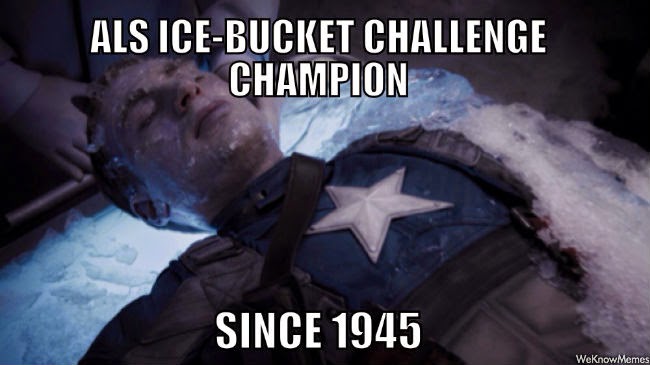How to prevent a possible concussion from the ALS ice bucket challenge
The ice bucket challenge has swept the nation in an effort to raise awareness for ALS. However, there seems to have been a number of concussions (or mild traumatic brain injuries) sustained from performing a seemingly altruistic act. Although some people may find the below video funny, concussions are a serious issue and can lead to serious consequences including executive dysfunction. Symptoms can include short loss of consciousness, feeling dazed and confused, loss of immediate memory, headaches, blurry vision, slurred speech, concentration difficulties, fatigue, and sleep disturbance.
https://www.youtube.com/watch?v=bNl9suOVV0w
Two recent meta-analyses (one examining neuropsychological performance while the other examining fMRI data) have in fact supported the claim that executive functioning can be negatively impacted after a mild traumatic brain injury (Carr et al., 2014; Eierud et al., 2014), although, there has been long-standing controversy regarding whether a mild traumatic brain injury can lead to long-term effects (Rohling et al., 2012).
Nevertheless, appropriate guidelines should be established regarding how to safely execute the ice bucket challenge. Thus, I propose the following recommendations (this is by no means an exhaustive list):
1) At least two people should be holding the bucket
2) There should be absolutely no throwing or dropping of the bucket
3) The ice cubes should be crushed
4) The distance from bucket to head should be no greater than 3 ft high
...and finally
5) Don't be an idiot about it
I've treated too many unfortunate individuals who've sustained traumatic brain injuries to find the humor in "ice bucket challenge fails" (as shown above). All of this is supposed to support the treatment of a serious medical condition, not cause one. It's interesting that in raising awareness for ALS, we now have to raise awareness for traumatic brain injury.
You can find the full Karr et al. (2014) paper here.
References:
Eierud C, Craddock RC, Fletcher S, Aulakh M, King-Casas B, Kuehl D, & LaConte SM (2014). Neuroimaging after mild traumatic brain injury: Review and meta-analysis. NeuroImage. Clinical, 4, 283-94 PMID: 25061565
Karr JE, Areshenkoff CN, & Garcia-Barrera MA (2014). The neuropsychological outcomes of concussion: a systematic review of meta-analyses on the cognitive sequelae of mild traumatic brain injury. Neuropsychology, 28 (3), 321-36 PMID: 24219611
Rohling, M., Larrabee, G., & Millis, S. (2012). The “Miserable Minority” Following Mild Traumatic Brain Injury: Who Are They and do Meta-Analyses Hide Them? The Clinical Neuropsychologist, 26 (2), 197-213 DOI: 10.1080/13854046.2011.647085
The above image is from http://imgur.com/tcv0cWT
